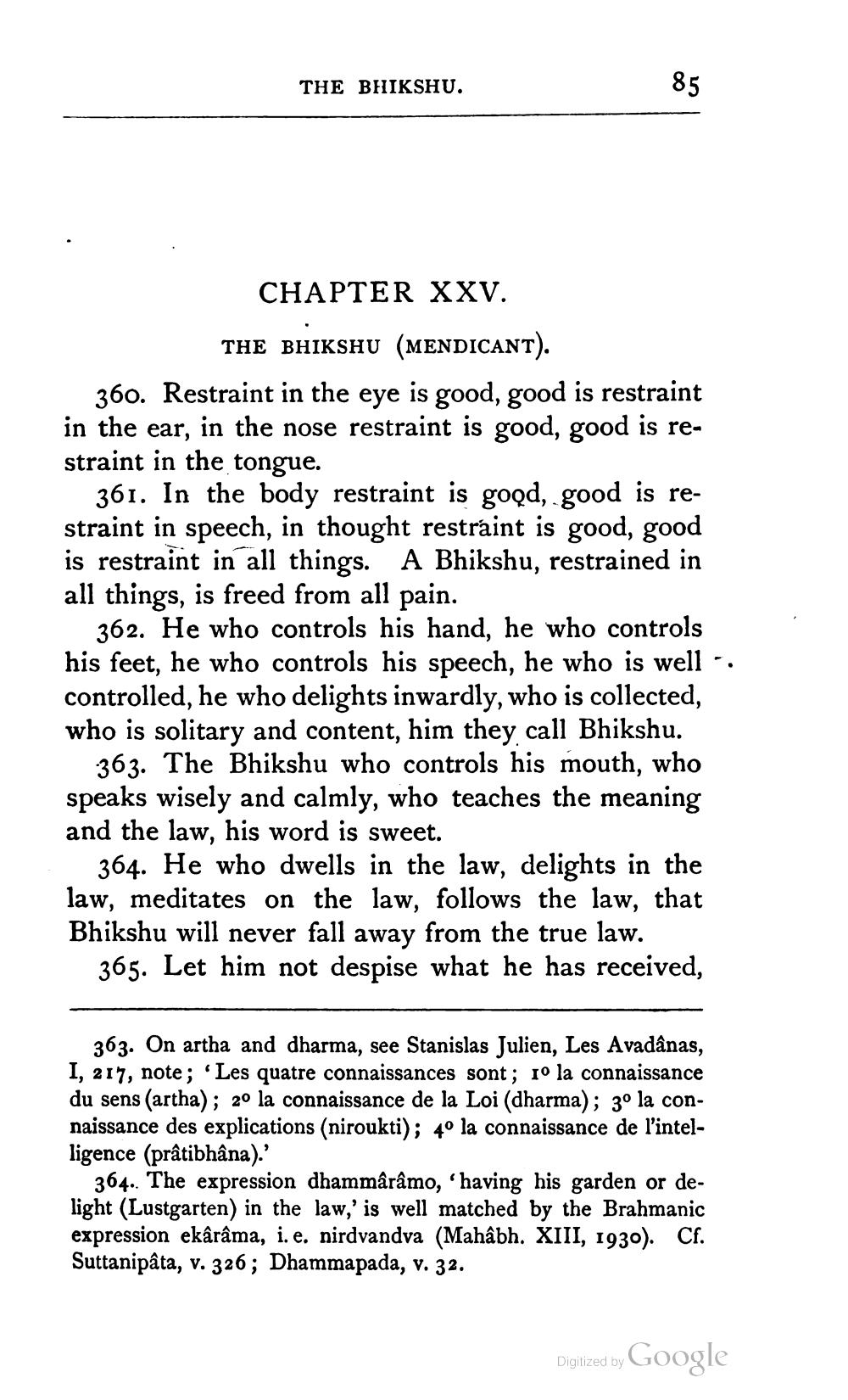________________
THE BHIKSHU.
CHAPTER XXV.
THE BHIKSHU (MENDICANT). 360. Restraint in the eye is good, good is restraint in the ear, in the nose restraint is good, good is restraint in the tongue.
361. In the body restraint is good, good is restraint in speech, in thought restraint is good, good is restraint in all things. A Bhikshu, restrained in all things, is freed from all pain.
362. He who controls his hand, he who controls his feet, he who controls his speech, he who is well . controlled, he who delights inwardly, who is collected, who is solitary and content, him they call Bhikshu.
363. The Bhikshu who controls his mouth, who speaks wisely and calmly, who teaches the meaning and the law, his word is sweet.
364. He who dwells in the law, delights in the law, meditates on the law, follows the law, that Bhikshu will never fall away from the true law.
365. Let him not despise what he has received,
363. On artha and dharma, see Stanislas Julien, Les Avadânas, I, 217, note; 'Les quatre connaissances sont; 10 la connaissance du sens (artha); 20 la connaissance de la Loi (dharma); 3° la connaissance des explications (niroukti); 4° la connaissance de l'intelligence (pratibhâna).'
364.. The expression dhammârâmo, 'having his garden or delight (Lustgarten) in the law,' is well matched by the Brahmanic expression ekârâma, i.e. nirdvandva (Mahâbh. XIII, 1930). Cf. Suttanipâta, v. 326; Dhammapada, v. 32.
Digitized by Google




